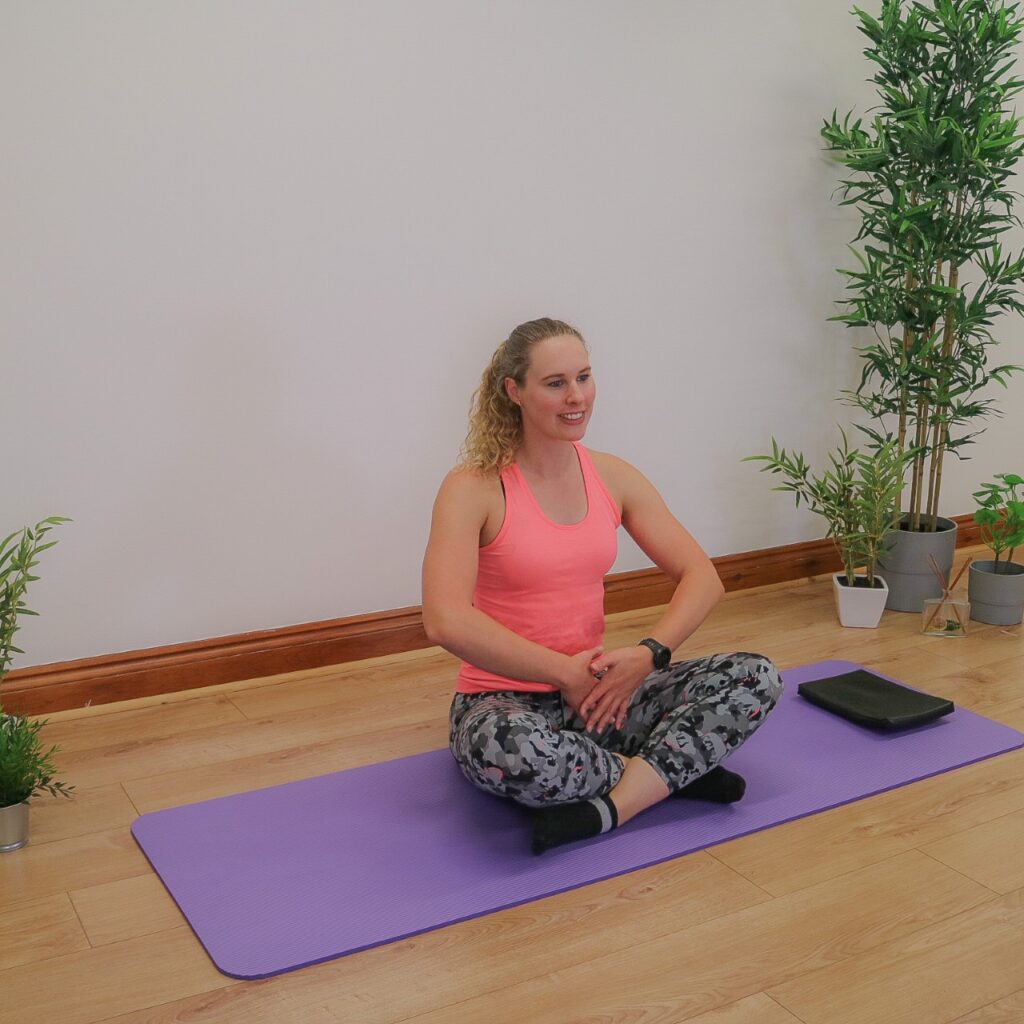Since I started doing MummyMOT assessments (the postnatal check you deserve), I have realised our pelvic floor is a part of our body not many of us realise exists, let alone know how to contract and relax! And, did you know, like any other muscle group in our body it can become tight or weak? This is where learning how to relax your pelvic floor becomes important.
You may have heard that it is important to work on strengthening your pelvic floor during pregnancy, or after you have a baby, but I think for most of us that is the extent of our knowledge. And, if you’re a male reading this, did you know you have a pelvic floor too?!
What is your pelvic floor?
Our pelvic floor is a group of muscles located between our tailbone (coccyx) and pubic bone (at the front of our pelvis). They support our bladder and bowels, as well as (in females) our uterus & vagina.
Why is it important to relax your pelvic floor?
Sometimes we learn to overuse muscle groups. If our abdominals are being overused, this can create increased tension in our pelvic floor muscles. This then means our pelvic floor can’t do it’s normal function supporting our bladder, bowels and (in females) our uterus. This can then impact these organs, and stop them from being able to do their job properly.
What improvements will you see if you learn to relax your pelvic floor?
Learning how to relax our pelvic floor helps with a whole range of symptoms. By relaxing your pelvic floor muscles you may see improvements in:
- Urinary incontinence
- Difficulty starting the flow of urine
- The sudden urge to urinate, even when our bladder isn’t full
- Difficulty emptying our bowels, including the need to strain
- Bowel incontinence
- Pelvic pain
- Pain during sex
- Difficulty inserting tampons
- Pain & difficulty undergoing vaginal or rectal examinations
Does anxiety affect whether you can relax your pelvic floor?
One of the effects of anxiety is that it creates tension within our bodies. This tension can impact on our pelvic floor muscles, causing any of the above symptoms to develop or worsen. Living with any of the above symptoms will often exacerbate feelings of anxiety as they are stressful symptoms to live with. This can lead to a vicious cycle.
Learning how to relax your pelvic floor can help you to break this cycle and start to make a change. Having tension in our pelvic floor muscles is not normal, and our brain can relearn how to relax them. It can be a tricky cycle to break, but it is possible.
I’ve created a video covering some pelvic floor stretches and relaxation techniques you can try yourself at home to help relax your pelvic floor. See if you can utilise any of the stretches or breathing exercises to help break that cycle and manage your symptoms.
You might also find my blog on how to breathe when doing Pilates helpful if you’re trying to re-train your body to do diaphragmatic breathing.
If you have any further questions on managing pelvic floor symptoms please feel free to email me so I can do my best to help you.
If you need help with your recovery after childbirth, then I’d love you to join my mailing list, where I send out free weekly tips on postnatal recovery & improving your pelvic health. If you enter your details below, you’ll also be sent my free download, my 12 week guide to help you recover from childbirth:
Please note that by entering your details you are signing up to my mailing list, from which you can unsubscribe at any time.

